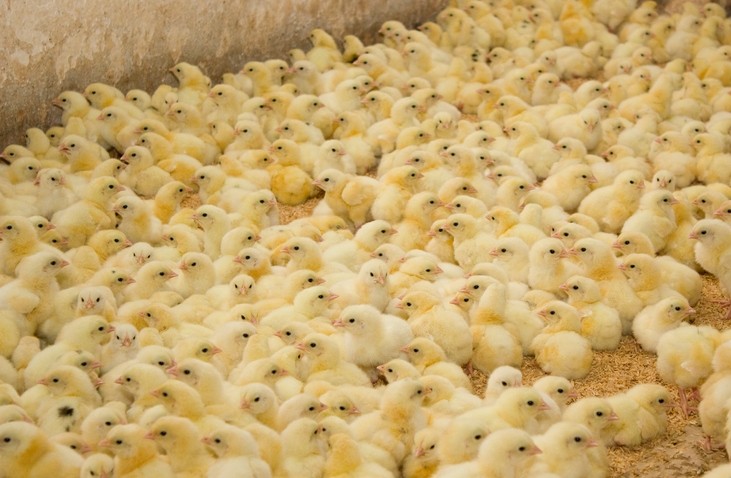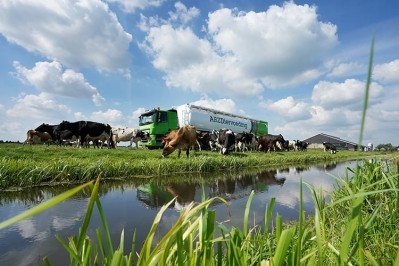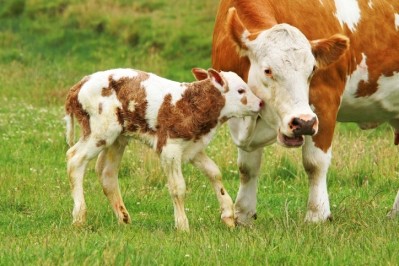Early nutrition may facilitate development of immune system in broilers

Moreover, low sanitary conditions (LSC), compared with high sanitary conditions (HSC), elevates the systemic antibody levels of birds from 14 days of age onwards, found the team, which included researchers based at Dutch feed group, Coppens Diervoeding, and the animal nutrition group at Wageningen University & Research.
“We speculate early nutrition and low sanitary conditions increase antigenic load resulting in greater B-cell stimulation,” wrote the authors in a paper published in Developmental & Comparative Immunology.
The team compared systemic maternal (MAb), natural (NAb), natural auto- (NAAb), and antigen specific antibody (SpAb) levels (IgM, IgY) between broilers that received early (EN) or delayed nutrition for 72 hours (DN), housed in either low (LSC) or high sanitary conditions (HSC).
To the authors’ knowledge, studies that compare immune development of broiler chickens under either LSC or HSC, and the interaction with feeding strategy are rare (Simon et al., 2015).
“Hence, we studied whether different feeding strategies (EN versus DN) and sanitary conditions (LSC versus HSC) affect development of NAb, NAAb, and SpAb levels.
“We propose that EN compared with DN, due to increased antigenic exposure, led to earlier stimulation of antibody producing B-cells, and thus higher antibody levels in EN broilers. This may ultimately improve the first line of defense towards infections and survival (Berghof et al., 2019; Star et al., 2007; Sun et al., 2011), and enhanced physiological homeostasis due to removal of damaged auto-antigens (Lutz et al., 2009; Ochsenbein, 1999).”
The study
One separate climate respiration chamber (CRC) was used for each sanitary condition and each CRC contained 8 floor pens, each containing 10 broilers per pen at the start of the experiment (0 days of age). This resulted in a total of 16 pens divided over two CRCs, they wrote.
Both CRCs were completely identical in their set-up and were controlled for identical climate conditions - temperature, humidity, CO2, NH3.
A broiler euthanized at 7 days of age was used for blood plasma and liver collection for antibody measurements and Western blotting.
From 7 days of age onwards, pens contained 5 broilers per pen. At 24 days of age, 1 broiler per pen was randomly selected for sheep red blood cell (SRBC) immunization and blood serum collection. At 33 days of age, 1 broiler per pen was randomly selected out of the remaining 4 broilers in the pen for blood plasma and liver collection, reported the team.
LSC were induced from 3 days of age until the end of the experiment and consisted of spreading used litter in pens every four days, with the CRC also under-pressurized. Broilers housed under HSC were kept in a separate over-pressurized CRC and caretakers and researchers were obliged to shower, and wear clean clothes, hairnet, gloves, and disinfected boots.
Results
At 7 days of age, broilers receiving EN compared with DN, had elevated levels of IgM binding keyhole limpet hemocyanin (KLH), phosphoryl-conjugated ovalbumin (PC-OVA), and muramyl dipeptide (MDP), whereas the effects of feeding strategy diminished at later ages, noted the researchers.
In LSC compared with HSC broilers, levels of NAb agglutinating RRBC and sheep red blood cells (SRBC) were already elevated from 14 days of age onwards. At 33 days of age, antibody levels (NAb, NAAb, anti-LPS, anti-MDP) were all elevated in LSC, compared with HSC broilers, for both IgM and IgY, but not IgM against KLH.
Western blotting revealed different binding patterns of NAAb against chicken liver homogenate, which may indicate that the NAAb repertoire is affected by antigenic pressure, they said.
“Our data suggest that antibody levels are affected for an important part by environmental conditions (feeding strategy and sanitary conditions), but minimally by their interaction. However, it remains to be further studied whether the enhanced levels of antibodies as initiated by EN and LSC contribute to enhanced resistance to infectious diseases,” they concluded.
Source: Developmental & Comparative Immunology.
DOI: https://doi.org/10.1016/j.dci.2020.103954
Title: Effects of early nutrition and sanitary conditions on antibody levels in early and later life of broiler chickens
Authors: M.S. Hollemans, G. de Vries Reilingh, S. de Vries, H.K. Parmentier, A. Lammers








